Seville, or Sevilla, is the fourth largest city in Spain and the largest city of the region of Andalusia in the south of the country. As visitors soon discover, there are many things to do in Seville. The city was founded as the Roman city of Hispalis in the 8th century A.D. on the banks of the Guadalquivir river and through the centuries, was occupied by a string of powers including the Moors (Muslims from northern Africa) who ruled the city from the 8th till the 13th century. The city became an important trading centre after the discovery of the Americas. Christopher Columbus left for his maiden voyage to the Americas in 1492 from a nearby port whilst Ferdinand Magellan began his voyage to circumnavigate the globe from Sevilla in 1519, ushering in Seville’s Golden Age, a period of immense wealth and the city blossomed as a cultural centre.
These days, Seville is perhaps best known for its historic monuments such as the Alcázar Palace, the Cathedral and the Archive of the Indies, all three UNESCO World Heritage sites. With its stunning historic buildings, charming neighbourhoods and rich cultural heritage, Seville is a must-see in my book. I spent several days exploring this gorgeous city but you can easily spend a week (or longer) here. If you’re visiting for the first time, here are my favourite ten things to do in Seville:
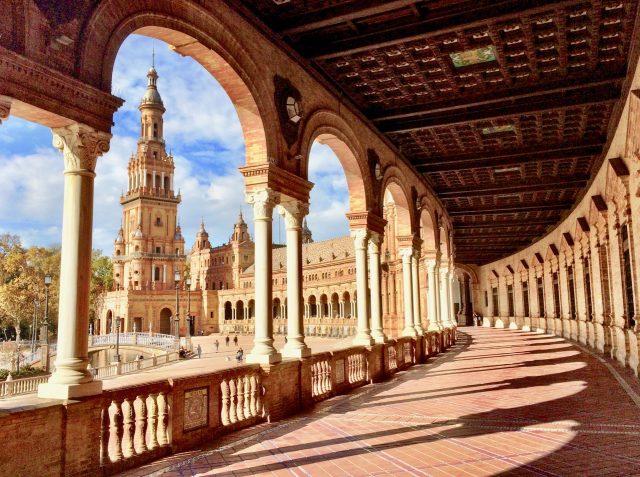

Ten things to do in Seville
1. Visit the Cathedral
The most popular thing to do in Seville is a visit to the Cathedral. The Sevilla Cathedral is a sight to behold. Built in the 15th century, the Cathedral is the world’s third-largest church and is an awe-inspiring mix of Gothic and Mudejár (a blend of Moorish and Gothic) influences. The interior of the Cathedral, with its towering nave, is breathtaking. Christopher Columbus’ tomb can also be found here.
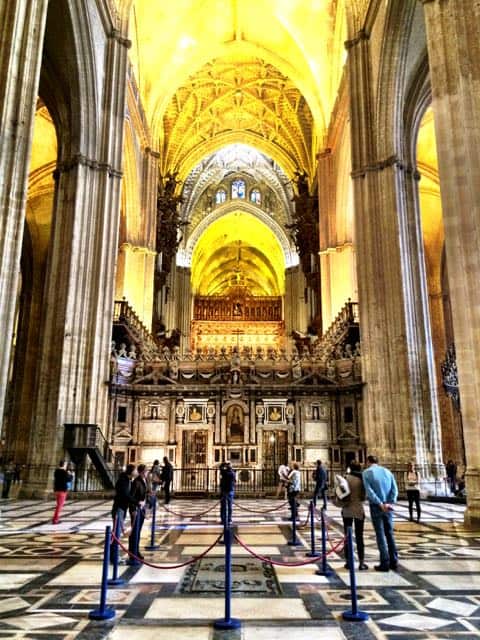
2. Climb La Giralda
The Sevilla Cathedral was built on the site of an ancient mosque. The mosque’s minaret, La Giralda, was kept and converted into a bell-tower. Today, La Giralda is arguably Seville’s most important landmark. The tower is accessible and it’s an easy climb. A ramp zigzags its way to the top and you can stop at various points along the way to check out the views. At the top, you’re rewarded with a grand 360-degree view of Seville.
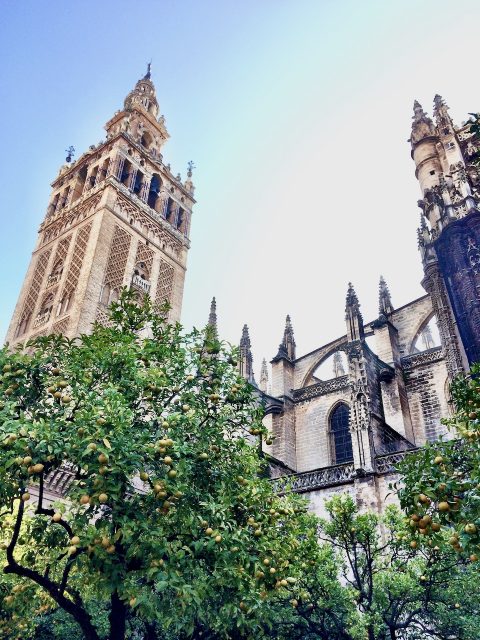
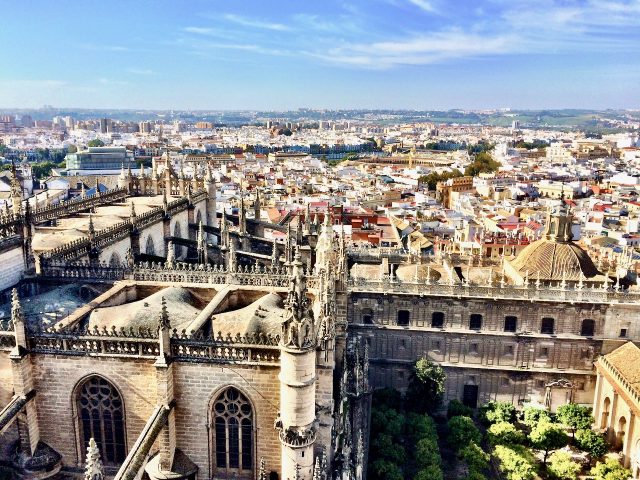
3. Stroll around the Real Alcázar and its gardens
Another top thing to do in Seville is to stroll around the Real Alcázar. The Real Alcázar or Alcázar Palace was built as a Moorish fort but was later converted into a palace. The palace is a glorious showcase of Mudejár architecture, featuring exquisite arches and columns and stunning tile-work. Some of the most breathtaking sections of the palace include the Hall of Ambassadors and the Courtyard of the Maidens. The tranquil palace gardens are another highlight. Purchase Real Alcázar skip-the-line tickets.

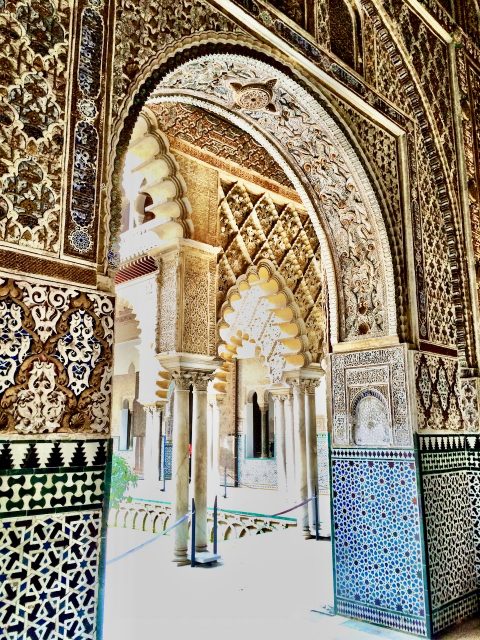
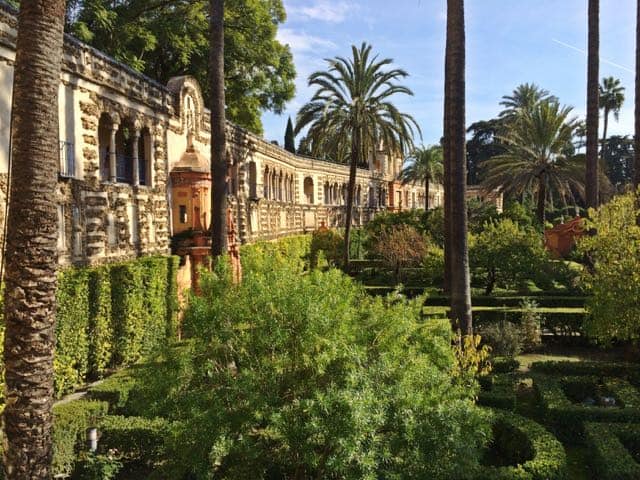
Read more about the historic architecture of Seville.
4. See the grandeur of Plaza de España
The Plaza de España is one of the grandest city squares I’ve ever seen. Built in the late 1920’s for the Ibero-American Expo (along with other present-day landmarks such as the Hotel Alfonso XIII and the Teatro Lope de Vega), the Plaza de España is a stunning example of Mudejár and Renaissance Revival styles.
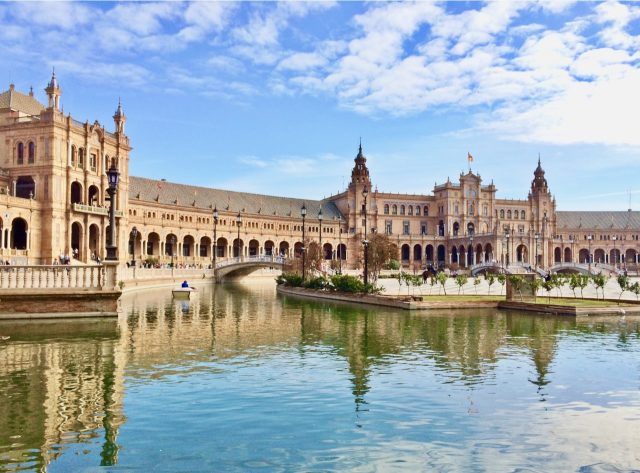
These days, the grand buildings surrounding the square house the offices of the Sevilla City Hall. Several scenes from the Star Wars movies, The Phantom Menace and Attack of the Clones, were filmed at Plaza de España. While you’re here, go on a stroll around the lovely Maria Luisa park adjacent to the square. The beautiful Archeology Museum can also be found in the park.
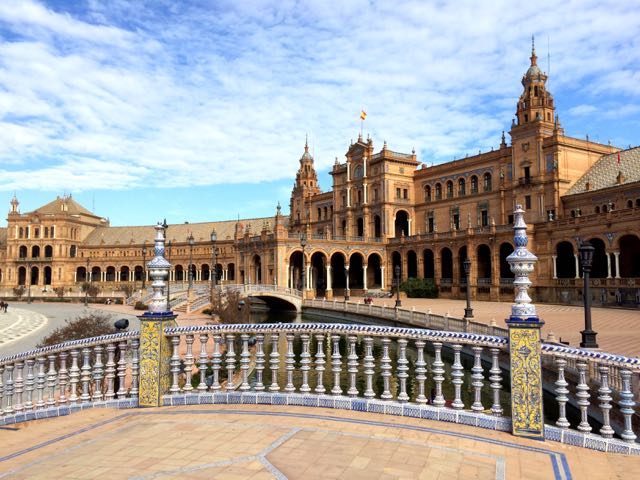
5. Clap along at a Flamenco show
You can’t leave Seville without experiencing a flamenco dance performance. This spectacular dance, an infusion of Spanish folklore with sounds from the Levant, North Africa and India, impresses with its power and drama, and tugs at your heart-strings with its soulful melancholy. There are many places to watch a flamenco show. Flamenco venues (tablaos) such as the massive El Palacio Andaluz and the smaller Tablao El Arenal are popular amongst tourists. You can also opt to book a dinner along with the show.
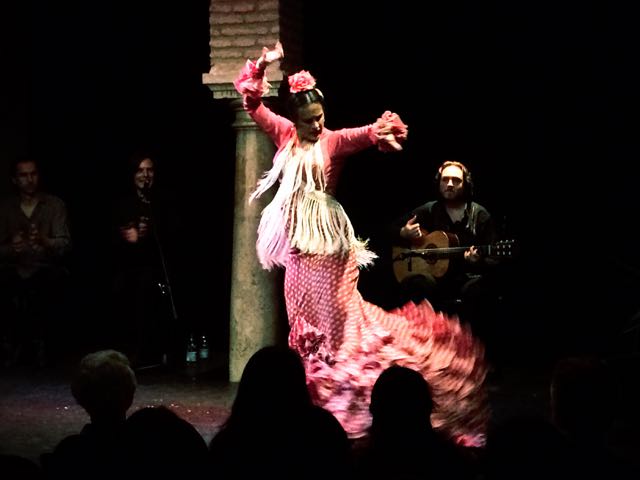
There are also smaller, more intimate venues, especially in the Triana neighbourhood. I experienced an amazing flamenco performance at the Flamenco Dance Museum – the museum has a gorgeous collection of flamenco artifacts and offers a walking tour of the lovely Santa Cruz neighbourhood after the show. Get tickets to a flamenco show and (optional) dinner. You can also join a private walking tour of the best tapas places in Triana and experience a local flamenco show.
6. Tuck into tapas
Tapas bars can be found all over the city. Locals feast on tapas bites and wine at many of the city’s squares and tree-lined streets. Some of my favourite tapas bars in the historic centre include Bodega Casablanca (Calle Adolfo Rodríguez Jurado 12, just off Avenida Constitucion), Bar Europa (Calle Siete Revueltas 35) and Vineria San Telmo (Paseo Catalina de Ribera 4). Each neighbourhood has its fair share of tapas bars – some great neighbourhoods to check out for their buzzing tapas scene include Santa Cruz, Triana and Alameda.
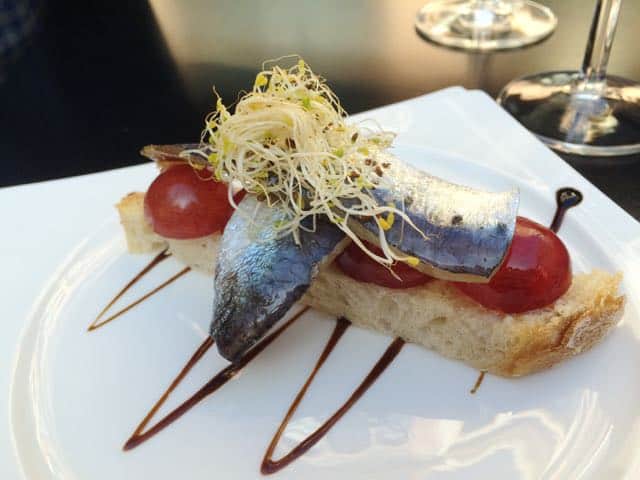
Alternatively, you can opt to go on a tapas tour. Check at the Tourist Office for more information on tours. If you like cooking courses, why not join a cooking class?
7. Wander around the neighbourhoods
Many visitors tend to stick to the historic centre and the adjacent Santa Cruz neighbourhood but Seville has much more to offer. The best way to immerse yourself in the city is to wander around some of the neighbourhoods like Santa Cruz, Alameda, Triana and La Macarena. Along the way, you’ll encounter beautiful buildings (look around for examples of Mudejár), churches, atmospheric squares, local artisans (such as the ceramic tile makers in Triana) and fabulous tapas bars.
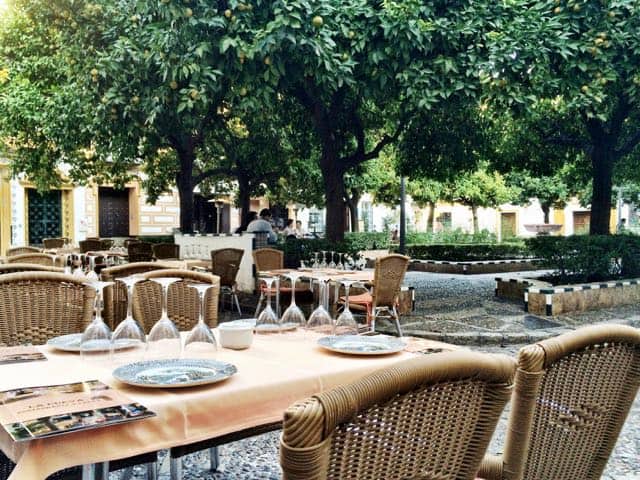
8. Marvel at the oyster mushrooms
The Metropol Parasol or locally-known as Las Setas (‘the mushrooms’) are wooden oyster-mushroom-like structures completed in 2011. The city planned to build an underground parking at this site but during the construction, builders stumbled upon ancient Roman ruins. Construction was halted for some years before a competition was held to decide an alternative purpose for the site. A German architect won the competition with his mushroom design. The Las Setas houses the remains of the Roman ruins in the basement. Head to the walkway on the roof for lovely views across the city.
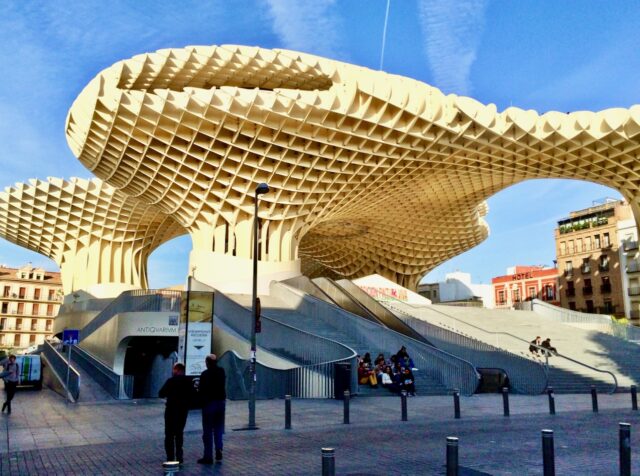
While you’re in this part of town, continue further and explore the La Macarena and Alameda neighbourhoods. Don’t miss the La Macarena Basilica and the buzzing Alameda de Hércules square.
9. Delve into Spanish art and history
If you’re a fan of art and history, don’t miss the General Archive of the Indies – a UNESCO World Heritage site – which houses an imposing collection of documents illustrating the history of Spanish Empire in the Americas. Some notable documents include letters written by Christopher Columbus, his journal and maps of the colonial cities.
Another must-visit is the Museo de Bellas Artes (Museum of Fine Arts) which is located in the beautiful former Convento de la Merced. The museum has an impressive collection of mainly Spanish visual arts (of the religious type) from the medieval period to the early 20th century.
10. See the homes of nobles
During Seville’s Golden Age (in the 16th and 17th centuries), many nobles built themselves elaborate palaces, often in a mix of Mudejár and Western styles such as Renaissance and Gothic. Several of these palaces such as the Lebrija Palace (or el Palacio de la Condesa de Lebrija) and the Casa de Pilatos are open to the public. It’s a great experience to wander around the homes of the nobles and admire the stunning architecture and artwork.
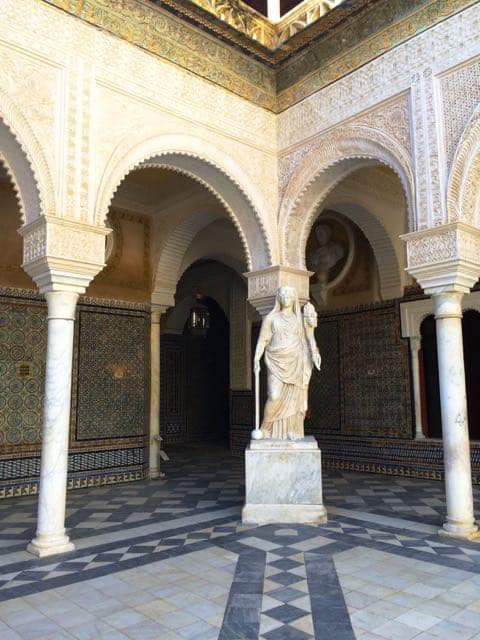
And those were my favourite things to do in Seville! I visited the city in search of an ‘epic accommodation’ and found not only an amazing hotel BUT an epic city to go with it! I only scratched the surface during my few days there and I can’t wait to return and explore more of Seville.

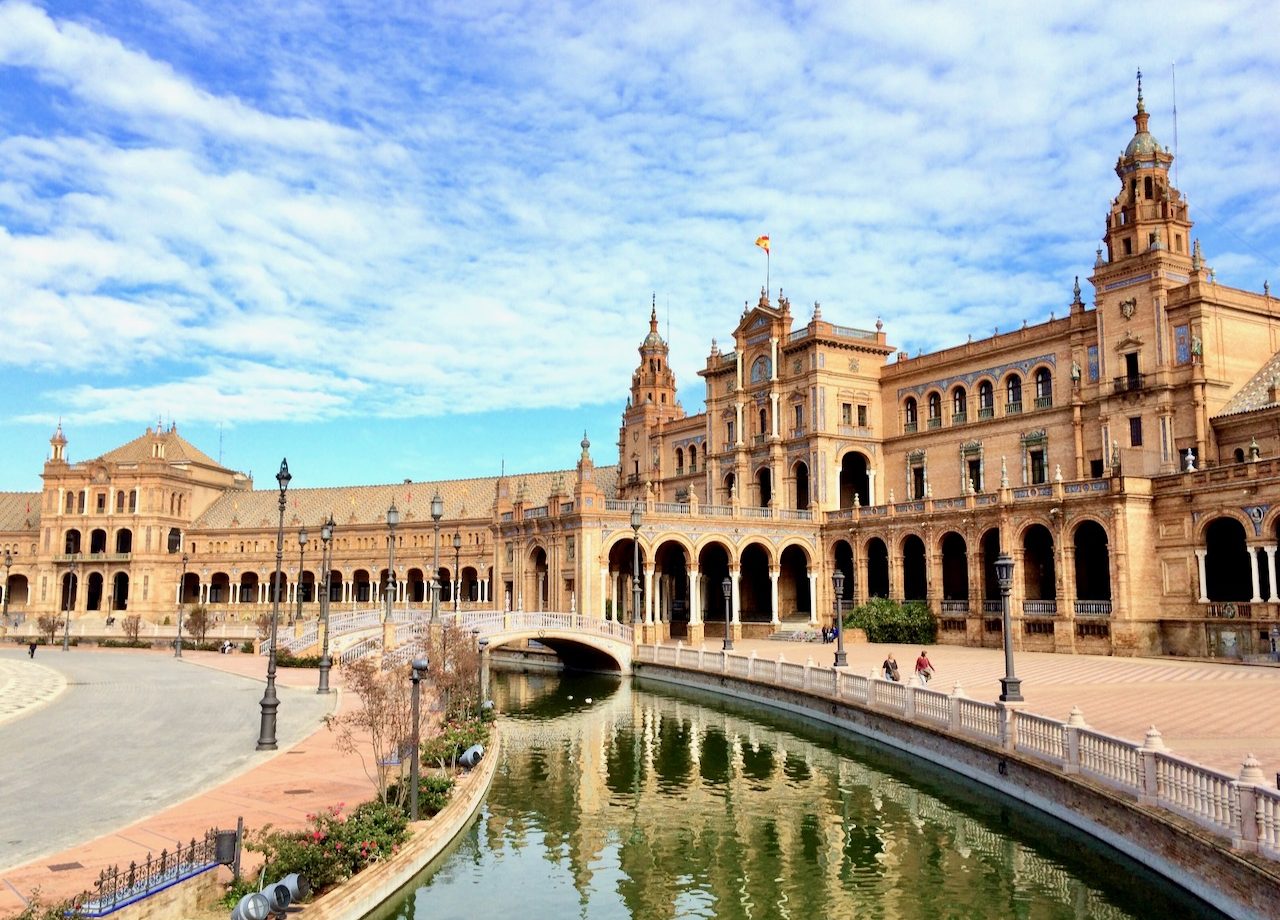
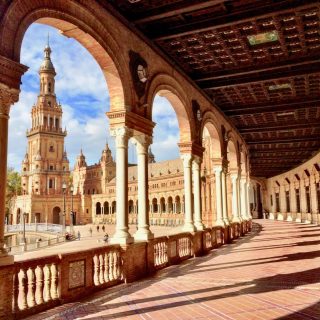
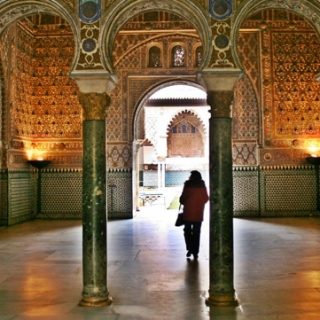
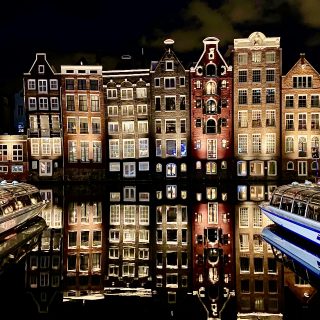
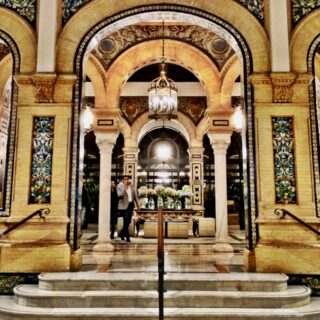






[…] Ten things to do in Sevilla […]
[…] the various neighbourhoods and delve into the city’s colourful history. Read more about things to do in Sevilla, and about the historic architecture in […]
[…] more about things to do in Sevilla and the historic architecture in […]
[…] Ten things to do in Sevilla […]
[…] Ten things to do in Sevilla […]
[…] Read about things to do in Sevilla. […]
[…] Read about things to do in Seville. […]
Thank you for sharing the article. It’s very interesting. I’d love to hear more from you.
There are so many unbelievable structures in Seville … the Moors sure left their mark on this place!
Thank you Rebekah for your lovely comment. I’m a big fan of Spain, as you might’ve noticed. Hehe! 🙂
Cheers,
Keith
Great list and absolutely beautiful pictures, Keith! Thanks for the inspiration to visit Spain.
Thanks Christel! 🙂
It’s an archaeological idealistic post indeed! It’s highly appreciated the way we got a lot information about Sevilla, Spine. Thanks for being writing such informative posts.
Best regards,
Saiful
I went to Spain over my 30th birthday and went to the Cathedral for Mass (and to climb La Giralda) to celebrate. Sevilla is a beautiful city—your list nails it!